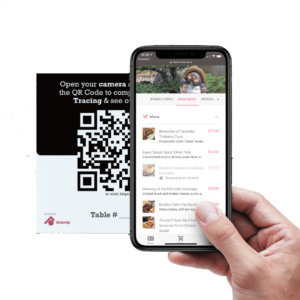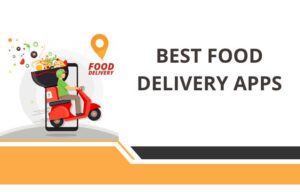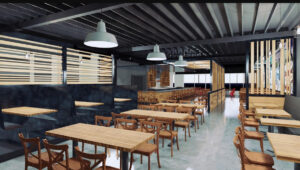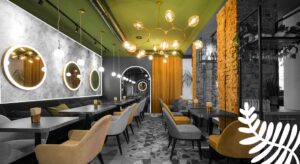Choosing The Best Restaurant Reservation System

Technology that has changed the way we dine can be traced back to 1795, when Benjamin Thompson created the first closed top cooking range that enabled cooks to adjust heating while preparing different meals. Fast forward to 1973, the first computerized point of sale system was created by IBM. A system which a year later, was customized to suit the restaurant industry by William Brobeck and Associates and was immediately leveraged by McDonald’s.
Over time, instead of resting on their lead, multiple technological innovators have built all sorts of systems and benefits that make it extremely comfortable for both customers and restaurant owners to collaborate. The online restaurant reservation system, in particular, has seen tremendous improvements since its inauguration by OpenTable in 1999.
Benefits of Restaurant Reservation system
- Improved operational efficiency and streamlined processes
- Enhanced customer experience and convenience
- Reduction in no-shows, maximizing table utilization and revenue
- Data-driven insights for informed decision-making and targeted marketing
- Seamless integration with existing systems like POS and CRM
- Efficient waitlist management for walk-ins and guest queues
- Effective online reputation management and increased visibility
- Scalability and flexibility to accommodate business growth
- Time and cost savings through automation and reduced administrative work.
How to choose The Best Restaurant Reservation System
As you consider providing your customers with a guaranteed table hence a guaranteed peace of mind, unraveled in the subsequent paragraphs are pointers to landing the best restaurant reservation system.
Features and Functionality:
Online Reservations: The system should offer the ability for customers to make reservations conveniently through your website, mobile apps, or other online platforms. This feature should be user-friendly and provide a smooth booking experience.
Table Management: Look for a system that provides efficient table management capabilities. It should allow you to create and customize table layouts, manage table availability, and assign reservations to specific tables. This helps optimize seating and minimize wait times.
Waitlist Management: An effective reservation software should have waitlist management features. It should enable you to handle walk-ins and manage guest queues efficiently. This includes features like automated waitlist management, wait time estimates, and notifications for available tables.
Guest Profiles and History: The system should allow you to create and store guest profiles, including contact information, preferences, allergies, and special requests. This helps provide personalized service and enhances the overall guest experience.
Real-time Availability Updates: Look for a system that provides real-time updates on table availability. This ensures accurate information for both customers and staff, minimizing the chances of overbooking or confusion.
POS Integration: Integration with your point-of-sale (POS) system is crucial for smooth communication between reservations and your front-of-house operations. It enables automatic syncing of reservations, guest information, and order details, streamlining the overall dining experience.
CRM Capabilities: Consider a software that offers customer relationship management (CRM) features. This includes features such as guest history tracking, customer segmentation, and marketing tools. CRM capabilities help you better understand and engage with your customers.
Online Payment Options: It should support online payment processing. This allows customers to prepay for their reservations, reducing the likelihood of no-shows and streamlining the payment process.
Mobile Accessibility: Ensure the system is mobile-friendly, with responsive design and mobile apps for customers and staff. Mobile accessibility allows for on-the-go management and convenient booking for customers using their smartphones or tablets.
Multi-location Support: If you have multiple restaurant locations, choose a reservation software that can handle multiple venues within a single account. This simplifies management, provides consolidated reporting, and ensures consistency across locations.
Customization Options:
Table Layouts and Configurations:
]Look for a system that allows you to customize and configure your table layouts according to your restaurant’s specific floor plan. This includes the ability to designate table sizes, seating capacities, and arrangement preferences.
Reservation Policies:
The system should provide flexibility in setting and customizing reservation policies to align with your restaurant’s unique requirements. This may include options for setting minimum/maximum party sizes, reservation lead times, and cancellation policies.
Special Requests and Preferences:
The system should provide a mechanism for capturing and accommodating special requests and preferences from guests. This customization feature allows you to cater to specific dietary restrictions, seating preferences, or other guest-specific needs.
Communication Templates:
Look for a system that enables customization of communication templates, such as confirmation emails, reminders, and notifications sent to guests. This allows you to tailor the messaging to align with your restaurant’s tone and style.
Language Localization:
If your restaurant caters to a diverse customer base, consider a system that supports language localization. This allows you to provide a seamless booking experience in multiple languages, accommodating guests from different regions or language preferences.
Integration and Compatibility
When considering integration and compatibility of a restaurant reservation system, focus on the following factors:
POS System Integration:
Look for a system that seamlessly integrates with your existing point-of-sale (POS) system. Integration allows for real-time synchronization of reservations, guest information, and order details between the system and POS. This streamlines operations, reduces manual data entry, and ensures accurate information across systems.
CRM Software Integration:
If you use customer relationship management (CRM) software to manage guest data and marketing efforts, choose a restaurant software that can integrate with your CRM system. Integration enables the sharing of guest information, reservation history, and preferences, facilitating personalized service and targeted marketing campaigns.
Website Integration:
Ensure that the reservation software can be easily integrated into your restaurant’s website. This allows customers to make online reservations directly on your website, providing a seamless user experience. Integration should be user-friendly and compatible with different website platforms and technologies.
Third-Party Platforms:
Consider whether the reservation app can integrate with third-party platforms, such as online travel agencies (OTAs), review sites, or social media platforms. Integration with these platforms expands your restaurant’s online presence, increases visibility, and potentially attracts new customers.
Data Transfer and Compatibility:
Check the compatibility of data formats and the ease of transferring data between the reservation system and other systems. A well-integrated system should allow for efficient data transfer without loss of information or compatibility issues.
API Availability:
Look for a reservation platform that provides application programming interfaces (APIs) or developer tools. APIs enable customization and facilitate integration with other systems, allowing for seamless data exchange and functionality between different platforms.
Scalability:
Handling Increased Demand:
Choose a restaurant reservation system that can handle increasing reservation volumes as your restaurant grows. It should have the capacity to manage a larger number of reservations without sacrificing performance or user experience.
Supporting Multiple Locations:
If you have or plan to open multiple restaurant locations, opt for a reservation software that can accommodate multiple venues within a single account. This allows for centralized management, consolidated reporting, and consistent guest experiences across all locations.
Flexible Configuration:
Look for a system that offers flexibility in configuring and adapting to changing needs. As your restaurant expands, you may require additional features, customizations, or integrations. it must be able to accommodate these changes without significant disruptions or limitations.
Scalable Pricing Model:
Ensure that the pricing structure of the reservation system is scalable as well. It should be able to align with your business growth, accommodating increased reservation volumes or the addition of new locations, without imposing excessive costs or pricing tiers that are not suitable for your expanding operations.
Performance and Stability:
It should have the infrastructure and technical capabilities to handle increased traffic and reservation activity without slowdowns or system crashes.
User Management:
The system should allow for user roles and permissions, ensuring secure access and management of reservations across different teams or venues.
Reporting and analytics:
Reservation Trends and Statistics:
Look for a system that provides comprehensive reporting on reservation trends and statistics. This includes data on reservation volume, peak hours, popular days of the week, and seasonal variations. These insights can help you make informed decisions about staffing, table allocation, and marketing strategies.
Guest Preferences and Behavior:
A system must have data on popular seating preferences, special requests, dietary restrictions, and frequent visit patterns. Understanding guest preferences allows you to personalize the dining experience and build stronger customer relationships.
Performance Metrics:
The software must include metrics like average table turnover time, average party size, reservation conversion rates, and guest satisfaction ratings. These metrics help you assess the efficiency of your operations and identify areas for improvement.
Customizable Reports:
The reservation system should offer customizable reporting capabilities, allowing you to generate reports tailored to your specific needs. This could include the ability to filter data based on date ranges, specific locations, or other criteria important to your business.
Integration with External Analytics Tools:
Check if the restaurant reservation system allows integration with external analytics tools or business intelligence platforms. This enables you to combine reservation data with other data sources for comprehensive analysis and deeper insights into your restaurant’s performance.
Real-time Updates:
Consider a system that provides real-time updates and access to reporting and analytics. This allows you to monitor and track key metrics on an ongoing basis, enabling timely decision-making and quick adjustments to operations as needed.
User-Friendliness:
Intuitive Interface:
It should be easy to navigate, with clear labels and logical workflows. This ensures that both staff members and customers can quickly and easily interact with the system.
Ease of Use for Staff:
The system must be designed with the needs of your staff in mind. It should offer straightforward features for managing reservations, updating table statuses, and accessing guest information. Staff members should be able to perform their tasks efficiently without extensive training or complicated processes.
Seamless Workflow Integration:
It should not disrupt or complicate the daily routines of your staff. Instead, it should enhance their productivity and effectiveness by simplifying reservation management tasks.
Clear and Concise Instructions:
The system should provide clear instructions or tooltips within the interface to guide users through various tasks. This helps minimize confusion and reduces the learning curve for new staff members.
Accessibility:
Consider the accessibility of the software for both staff and customers. It should be compatible with different devices and screen sizes, allowing users to access and interact with the system easily from desktops, tablets, or mobile devices.
Training and Support:
It must be accompanied by comprehensive training materials and ongoing support. The system provider should offer training sessions, tutorials, documentation, and responsive customer support to assist users in utilizing the system effectively.
Regular Updates and Improvements:
Look for a reservation software that regularly updates and improves its user interface and functionality based on user feedback. This ensures that the system remains user-friendly and addresses any usability issues or enhancement requests.
Conclusion
selecting the best restaurant reservation system is a crucial decision that can greatly impact your restaurant’s operations and customer experience. By considering key factors such as features and functionality, customization options, integration and compatibility, scalability, reporting and analytics, user-friendliness, and customer support, you can make an informed choice that aligns with your specific needs and goals.
A restaurant reservation system streamlines operations, improves efficiency, and enhances the overall customer experience by enabling online reservations, efficient table and waitlist management, and real-time updates. Integration with POS systems, CRM software, and websites ensures seamless communication and data flow. Scalability allows the system to adapt to your restaurant’s growth, whether it’s handling increased demand or managing multiple locations.






